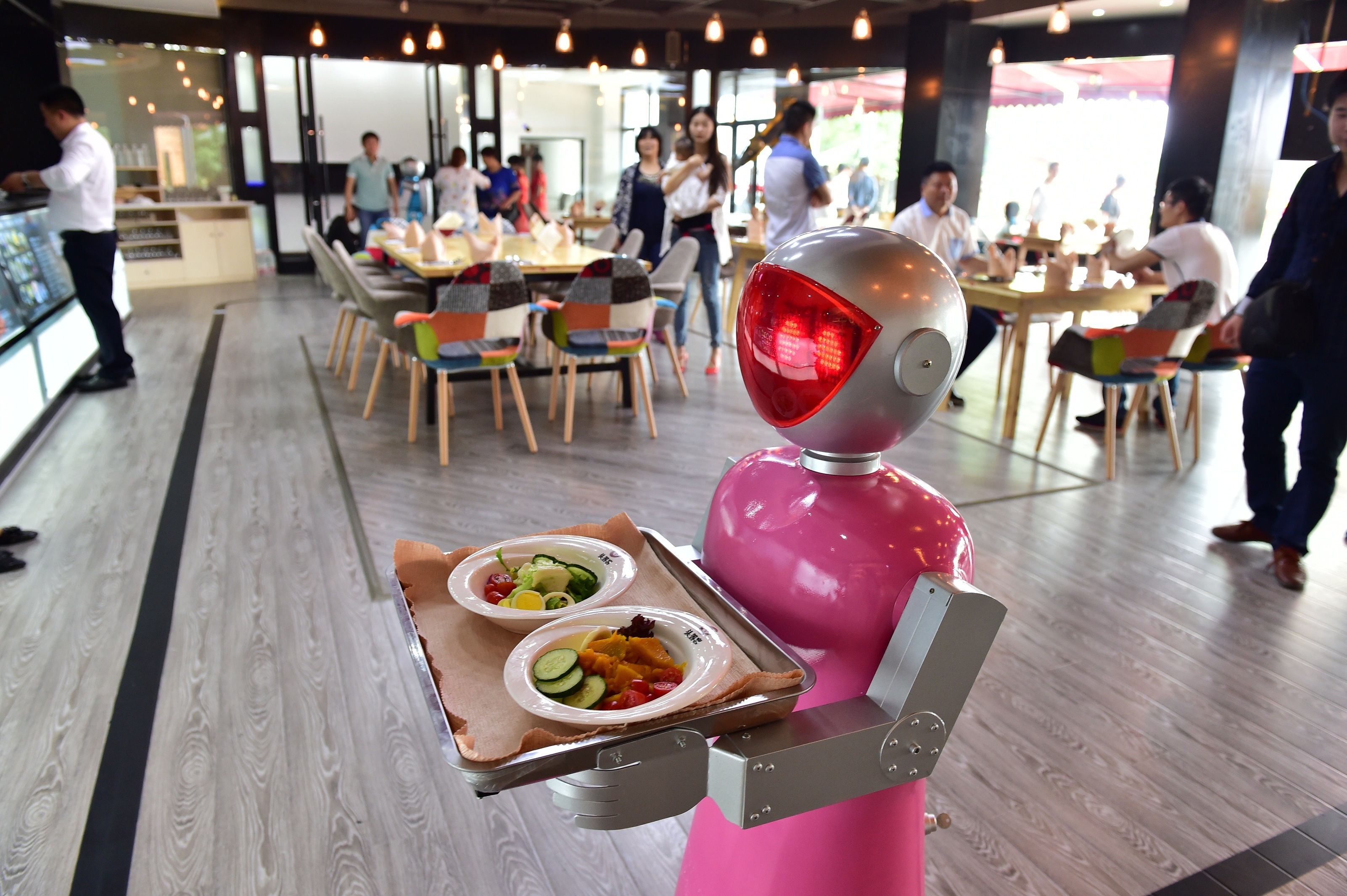Robots to replace one in five workers by 2030
Study reveals which UK constituencies have most at-risk jobs

A free daily email with the biggest news stories of the day – and the best features from TheWeek.com
You are now subscribed
Your newsletter sign-up was successful
One in five workers risk losing their jobs to automation by 2030, a new report warns.
Workers who hold jobs in manufacturing, transport and storage are most vulnerable to losing their job to robotised systems, according to the study by think tank Future Advocacy, which focused on the potential impact at local level in the UK’s 650 constituencies.
Shadow chancellor John McDonnell’s Hayes and Harlington constituency has the highest portion of “high-risk jobs”, the report says, with a total of 39.3% of 92,150 workers in danger of losing their job to robots by 2030.
The Week
Escape your echo chamber. Get the facts behind the news, plus analysis from multiple perspectives.

Sign up for The Week's Free Newsletters
From our morning news briefing to a weekly Good News Newsletter, get the best of The Week delivered directly to your inbox.
From our morning news briefing to a weekly Good News Newsletter, get the best of The Week delivered directly to your inbox.
Meanwhile, Labour’s Ian Murray has the lowest portion of high-risk jobs in his Edinburgh South constituency, at just 21.8%.
But the population doesn’t seem too troubled by the rise of robots, the report claims. Only 2% of a sample of more than 2,000 people classed themselves as “very worried” about losing their jobs to automated systems.
However, says The Guardian, opinions about the overall impact of the artificial intelligence revolution remains “divided”.
“Optimists have said that the lesson from history is that technological change leads to more jobs being created than destroyed,” the newspaper says, “while pessimists have argued that AI (artificial intelligence) is different because the new machines will be able to do intellectual as well as routine physical tasks.”
A free daily email with the biggest news stories of the day – and the best features from TheWeek.com
Future Advocacy’s report urges the Government to create “targeted strategies” that “address future job displacement”. These strategies could include “supporting businesses to retrain employees”, as well as offering “financial and psychological support to people impacted”.
It also calls for improvements to the education system to “maximise the opportunities and minimise the risks created by AI”.
-
 What to know before filing your own taxes for the first time
What to know before filing your own taxes for the first timethe explainer Tackle this financial milestone with confidence
-
 The biggest box office flops of the 21st century
The biggest box office flops of the 21st centuryin depth Unnecessary remakes and turgid, expensive CGI-fests highlight this list of these most notorious box-office losers
-
 The 10 most infamous abductions in modern history
The 10 most infamous abductions in modern historyin depth The taking of Savannah Guthrie’s mother, Nancy, is the latest in a long string of high-profile kidnappings
-
 Claude Code: Anthropic’s wildly popular AI coding app
Claude Code: Anthropic’s wildly popular AI coding appThe Explainer Engineers and noncoders alike are helping the app go viral
-
 Will regulators put a stop to Grok’s deepfake porn images of real people?
Will regulators put a stop to Grok’s deepfake porn images of real people?Today’s Big Question Users command AI chatbot to undress pictures of women and children
-
 Most data centers are being built in the wrong climate
Most data centers are being built in the wrong climateThe explainer Data centers require substantial water and energy. But certain locations are more strained than others, mainly due to rising temperatures.
-
 The dark side of how kids are using AI
The dark side of how kids are using AIUnder the Radar Chatbots have become places where children ‘talk about violence, explore romantic or sexual roleplay, and seek advice when no adult is watching’
-
 Why 2025 was a pivotal year for AI
Why 2025 was a pivotal year for AITalking Point The ‘hype’ and ‘hopes’ around artificial intelligence are ‘like nothing the world has seen before’
-
 AI griefbots create a computerized afterlife
AI griefbots create a computerized afterlifeUnder the Radar Some say the machines help people mourn; others are skeptical
-
 The robot revolution
The robot revolutionFeature Advances in tech and AI are producing android machine workers. What will that mean for humans?
-
 Separating the real from the fake: tips for spotting AI slop
Separating the real from the fake: tips for spotting AI slopThe Week Recommends Advanced AI may have made slop videos harder to spot, but experts say it’s still possible to detect them